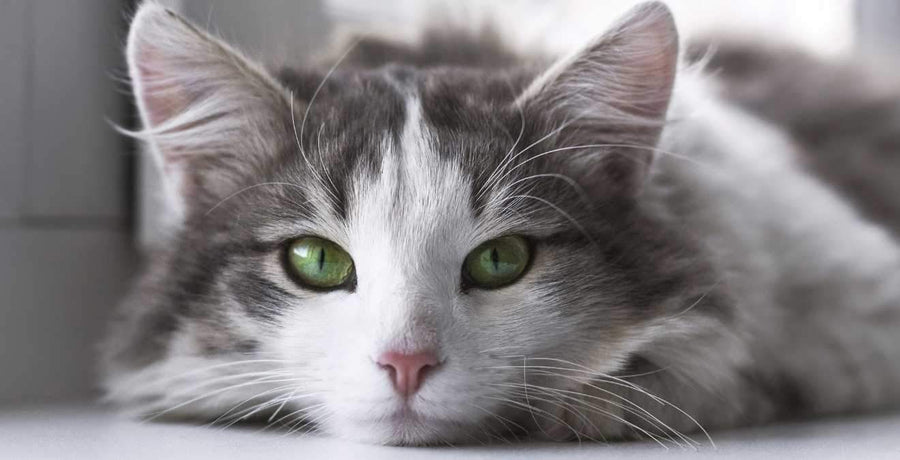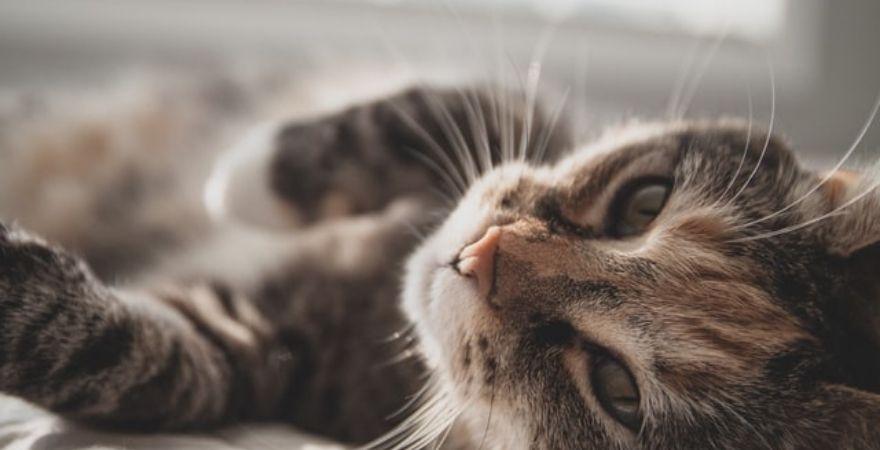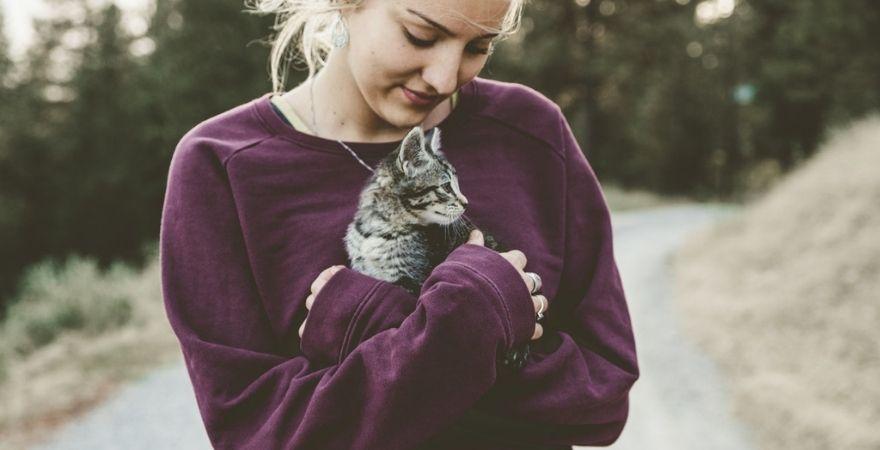Article at a glance
FIV stands for Feline Immunodeficiency Virus and is similar to the well-known HIV virus in humans. Those cats who have lived as strays are more commonly affected, especially unneutered males.
- FIV in cats weakens the immune system and leaves affected cats open to secondary infections.
- Sadly, there is no cure for FIV. Despite this, many affected cats can enjoy a good quality of life.
- It is important to note that FIV is not transmissible to humans. It can, however, be passed from cat to cat.
What Is FIV in Cats?
So, what is FIV in cats? FIV in cats is a common infection that is present all around the world. It is also known as ‘Feline AIDS’ or ‘Cat Aids’. Cats may initially not show any signs of being unwell. As they get older, their immune system will weaken and they will develop a range of infections which can make them poorly.
While owners may find it hard to deal with the diagnosis of Feline Aids in their cats, studies have shown that an FIV positive cat can potentially live for a normal amount of time..
Is Feline AIDS the Same as FIV?
FIV progresses to Feline Acquired Immunodeficiency Syndrome over time, much like HIV eventually leads to AIDS in humans. Despite this difference, you may hear owners and health professionals refer to FIV as ‘Feline AIDS’ or ‘Cat AIDS’. These terms are often better understood by the general public.
.
How Do Cats Get FIV and is FIV Contagious to Other Cats?
So, how does a cat get FIV? Cats get FIV from other cats who are already infected. Disease is spread via direct contact only, for example, via a bite or scratch. This is why it is most common in intact males who are sexually active and who fight over territory. It is not usually spread via casual contact, such as through mutual grooming or from infected food bowls or litter trays.
As FIV is contagious to other cats, it is advised that all FIV positive cats are kept indoors. This protects the general cat population. While this is not always easy for cats who are used to spending time outside, it is an important step in the management of the virus.
Some kittens will become infected if their mother is FIV positive. However, not every kitten in a litter will develop the virus. Most will initially test positive but should be re-tested when older to determine if they have the infection or not.
What Are the Symptoms of FIV in Cats?
Symptoms of FIV in cats can include chronic infections of the eyes, respiratory tract and gums. We may also see signs such as fevers, enlarged lymph nodes, weight loss, a lack of appetite, diarrhoea and lethargy.
Cat AIDS symptoms may not be present for several years. The symptoms, when they do develop, are not specific to FIV and can be present in FIV negative cats too.
What Are the Stages of FIV in Cats?
The cat FIV stages proceed in the same order in every feline. After they become infected, they may experience a short-lived illness, though signs can be subtle and are often missed. Afterwards, cats will seem normal and won’t show any overt signs. This period can last for many years. For some cats, they will never go on to develop more serious signs.
Eventually, most FIV positive cats will become unwell. Owners will find they are catching infections regularly and seem generally under the weather. They may lose weight and develop ongoing issues such as chronic diarrhoea and gingivitis.
How to Treat FIV in Cats?
Sadly, FIV in cats cannot be cured though it can be well-managed. The most important part of managing a cat is to prevent spread by keeping them indoors and away from other cats. Males must be neutered, which will make it a lot easier to keep them inside. We can provide supportive care, treating any infections that develop and trying to bolster their immune system.
We should feed a high-quality diet and ensure cats are up to date with their parasite prevention and receive regular health checks. It is important that any health issue is picked up on promptly. Those who live in single cat households tend to do best as illustrated in this study.
As FIV is a viral infection, treatments are not widely available and their efficacy is questionable. Feline Interferon Omega and other anti-viral drugs may be helpful for some. They are not available in every country and can be very expensive.
What Is the Life Expectancy for FIV-Positive Cats?
On average, FIV positive cats live for about five years after diagnosis. However, this varies from individual to individual. With good care, it isn’t unusual for an infected cat to live into their teens.
While alive, most can live a normal life and their FIV does not necessarily limit them.
How Do You Prevent FIV in Cats?
The best way to prevent cat FIV is to ensure your cat is neutered and to keep them indoors. However, there are other factors to consider when deciding on whether your cat should be kept inside at all times. For many kitties, they will find this stressful and may develop behavioural issues.
If you re-home a new cat, have them tested for FIV before socialising them with any other cats in your home. This is especially important if the new cat was ever a stray.
Is There an FIV Vaccine for Cats?
Yes, a vaccine is in existence. It is not widely used and is not currently used in North America or Europe. One big issue with the vaccine is that it can cause false positive results when FIV tests are performed. Studies have shown this is only an issue with some detection kits. Another problem is that the vaccine isn’t effective against all strains of FIV in cats.
We recommend the Scruffy Paws Immune Shield Liquid Product
The Scruffy Paws Immune Shield Liquid drops contain all natural herbal ingredients that have been studied to stimulate your cats immune system. The other ingredients have antibacterial, antiviral, and antiparasitic properties (Promotes normal body function and a healthy cat skin and coat, It is a perfect cat immune system booster). This liquid food mix is well tolerated by cats and can be used in those diagnosed with viral infections such as Herpes, FIV and FeLV, as well as in cats who are generally prone to infections.
Final Thoughts
The symptoms of FIV in cats aren’t specific so it is important that your cat is diagnosed with a blood test if you are suspicious of the disease. With the right supportive care, FIV positive cats can lead relatively normal lives. Remember, it is generally advised that they should not be allowed outside, as this would put other cats at risk.
Dr. Linda Simon, BVMS, MRCVS
Veterinary surgeon,Dr. Linda Simon MVB MRCVS is a locum veterinary surgeon who has worked in London for the past 8 years. She graduated top of her class in small animal medicine from UCD, Dublin. She is currently a member of the Royal College of Veterinary Surgeons.




